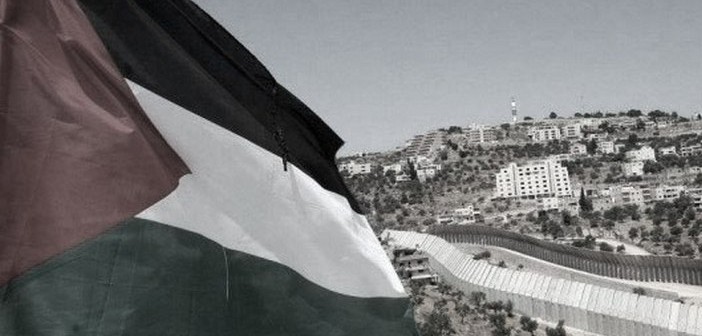It’s clear that over the years the idea of a two-state solution has been the dominant theme of the peace process, and this dates back to the UN partition plan of 1947, also known as UN Resolution 181, which formed the legal basis for Israel to exist as a Jewish state. The State of Palestine was declared in 1988, when the Palestinian National Council (PNC) issued the Palestinian Declaration of Independence, and the Palestinian Liberation Organization (PLO) officially adopted the two-state solution. Before the EU vote on Palestinian statehood, 134 countries had already recognized the state of Palestine, especially in the aftermath of the above-mentioned Declaration of Independence.
On 29 November 2012, the United Nations General Assembly voted to give Palestine “non-member observer state status.” The Palestinians leadership’s quest for statehood has created polarization and raised concerns among Palestinians. As Guy Goodwin-Gill, a professor of public International law at Oxford University has highlighted in his seven-page legal opinion, “the interest of the Palestinian people are at risk of prejudice and fragmentation unless steps are taken to ensure and maintain their representation through the PLO.” Historically, the PLO has been the sole, legitimate representative of the Palestinian people in the UN and in other international and multinational forums, representing the entire Palestinian people, including those in the Diaspora. The Palestinian Authority (PA), however, only represents Palestinians in the West Bank and Gaza Strip. A Palestinian state would mean that the unelected representatives of the PA would represent Palestinians in the General Assembly instead of the PLO, which would affect the right of all Palestinians everywhere to be represented—especially as it pertains to the right of return. The issue of the legitimacy of Palestinian representation as an “internal” issue cannot therefore be separated from the decision to pursue the statehood bid.
The Palestinian leadership itself is reflective of the Oslo agreement signed in 1993. The PA was meant to be an interim governing body that has since replaced the PLO and transformed interim Palestinian self-governance into a permanent arrangement. This replaced the struggle for self-determination with an institution-building project.
Today the PA only controls fragments of Occupied Palestinian Territories, and has no sovereignty over any borders, land resources, water, or the movement of people and goods within those territories. Palestinians are not even closer to reaching a peace agreement with Israel about where the borders of a future state will be.
Now, European national parliaments’ push for recognition has created new momentum in taking steps towards the establishment of an independent Palestinian state. In October 2014, Sweden became the first Western European country to officially recognize the state of Palestine as part of the “two-state solution”. This was followed by parliamentary votes recommending a similar move in the UK, Spain, France, Italy, Portugal, Ireland and Luxembourg.
Britain’s House of Commons voted 274-12 to pass a symbolic non-binding motion—put forward by the Labour MP Grahame Morris–stating: “this House believes that the Government should recognize the state of Palestine alongside the state of Israel, as a contribution to securing a negotiated two state solution.”
In December, the European Parliament also adopted a resolution by an overwhelming majority of MEPs, expressing support “in principle” of the recognition of a Palestinian state.
The European Parliament reiterated its support for the two-state solution “on the basis of the 1967 borders, with Jerusalem as the capital of both states, with the secure State of Israel and an independent, democratic, contiguous and viable Palestinian State living side-by-side in peace and security.” The compromise motion, however, did not support immediate recognition of a Palestinian state. Head of the centre-left Socialist and Democrats (S&D) Group, Gianni Pittella MEP said: “This is an historic moment for Palestine, Israel and the European Union.”
What do all these moves mean?
The latest moves have mainly emerged out of a growing sense of frustration in Europe over continued illegal-settlement expansion, and a lack of progress in the peace negotiations with Israel.
But yet again, these moves are expected to have neither legal weight nor a practical impact. Analysts note the parliamentary votes are just recommendations and won’t alter government, or for that matter Europe’s foreign policies. On the one hand, some argue that symbolism does matter, especially in diplomacy; that Europe is taking an active role in trying to push for a two-state solution. Palestinian critics, such as Noura Erakat, on the other hand, say the whole project of winning recognition is “too little, too late.” According to Erakat, “these European moves may have been beneficial if they had happened ten years ago, but now it’s just a symbolic gesture.” Thus, this illusion of diplomatic and political progress could end up prolonging the status quo instead of effectively changing the reality or the life of Palestinians on the ground. This shows that Europe is far from taking real and effective measures against Israel’s occupation. Recognizing a fictitious Palestinian state in a geographically fragmented and disintegrated area colonized by Israel, while still pursuing EU-Israel bilateral trade agreements and economic cooperation, is “hardly a milestone in consistent policy-making.”
The reality on the ground is that Palestinians are far worse off today than they were in 1993. After all, the Oslo agreement resulted in the significant expansion of Israel’s illegal Jewish-only settlements in the West Bank and East Jerusalem. All diplomacy and debate about the Jewish settlements mention their withdrawal or “dismantling” as a necessary measure for peace. However, these settlements, with their expansive infrastructure are increasingly making the notion of a two-state solution impossible. According to a report published by Oxfam, the number of Israeli settlers has more than doubled from “262,500 settlers in 1993 to over 520,000 today” across the West Bank, “including 200,000 in East Jerusalem.” The issue of water is also problematic as the mountain aquifer, which is currently under total Israeli control, runs through the middle of the West Bank and therefore would be claimed by Palestinians for their future state.
How can the EU take practical and concrete measures against violations and ongoing crimes by Israel? The EU can suspend the EU-Israel Association Agreement, like it suspended its association agreement with Sri Lanka in 2010; it can suspend all military exports to Israel, and impose sanctions for its continuing grave violations of International law. It’s important to highlight Israel’s crimes and the illegality of its actions, from the ICJ opinion in 2004, to its violation of Article 49 of the 4th Geneva Convention, to its violation of the crime of apartheid according to South African legal experts- all of which is precedent for the imposition of disciplinary action like sanctions.
Non-binding, symbolic parliamentary votes do not change the fact that the EU is still complicit in perpetuating Israel’s occupation and colonisation, at the expense of the Palestinian right to self-determination.





